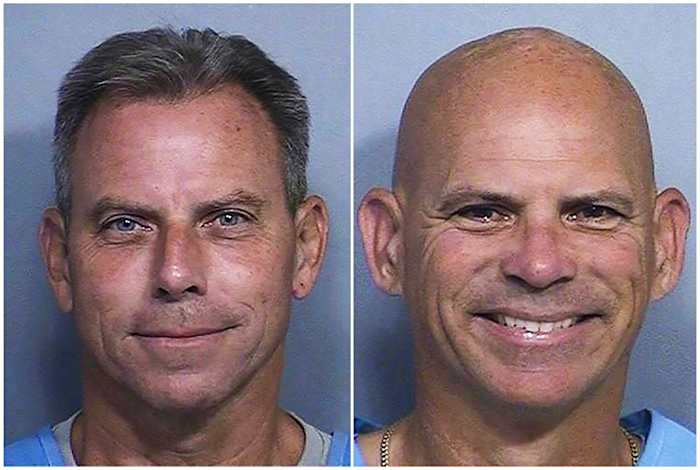UPDATE: Erik Menendez was just denied parole by California commissioners during a hearing on July 20, 2023, where he opened up about his traumatic upbringing and the chilling choices he made in the wake of his parents’ murders. This hearing marks a pivotal moment as Menendez offered his most extensive reflections in decades, shedding light on his life before and during his incarceration.
During the hearing, Menendez, along with his brother Lyle, was sentenced to life in prison in 1996 for the brutal killings of their parents, Jose and Kitty Menendez, at their Beverly Hills mansion in 1989. The state corrections department allowed only one reporter to observe the videoconference, relaying essential details to the press.
Menendez revealed shocking insights into his upbringing, stating, “I was not raised with a moral foundation. I was raised to lie, to cheat, to steal.” He recounted how his father encouraged cheating, which shaped his understanding of right and wrong. This lack of moral guidance, he argued, influenced his actions during the tragic events of his youth.
In a deeply emotional moment, Menendez spoke of the sexual abuse he endured at the hands of his father. He expressed a haunting wish, saying, “I fantasized about my father not being alive.” When questioned about why he did not just leave the family home at age 18, he replied, “In my mind, leaving meant death. There was no consideration. I was totally convinced there was no place I could go.” His statements painted a portrait of a young man trapped in a cycle of fear.
The panel pressed Menendez on the murder of his mother. He explained that he felt no distinction between his parents because he discovered that she was aware of the abuse: “It was the most devastating moment in my entire life. It changed everything for me.” Reflecting on his actions, he lamented, “I wish to God I did not do that.”
The hearing also brought to light Menendez’s numerous rule violations while in prison, including alcohol use, gang affiliation, and possession of a cellphone. He rationalized his decisions, stating, “What I got in terms of the phone and my connection with the outside world was far greater than the consequences of me getting caught with the phone.” Menendez admitted to using substances to cope with his sadness, saying, “If I could numb my sadness with alcohol, I was going to do it.”
In a significant turn of events, Menendez revealed a transformation since 2013 when he chose sobriety and found faith. He reflected, “From 2013 on I was living for a different purpose. My purpose in life was to be a good person.” He expressed a desire for redemption, asking himself, “Who do I want to be when I die?”
As the hearing concluded, the commissioners denied his request for parole, leaving Menendez to continue serving a life sentence. His statements resonate with the ongoing discussions about mental health, trauma, and accountability, prompting many to question the systemic failures that allowed such a tragic series of events to unfold.
What happens next for Erik Menendez remains uncertain. His future hinges on potential appeals and continued reflection on his past. The emotional weight of his testimony will likely fuel ongoing discussions about justice, rehabilitation, and the complexities of familial relationships.
Stay tuned for more updates on this developing story as it continues to captivate public attention.





































































